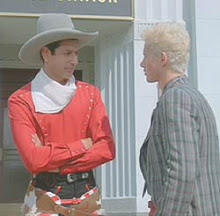
204. RONETTES, "I Wish I Never Saw The Sunshine"
Produced by Phil Spector; written by Jeff Barry & Ellie Greenwich
Philles Records--Recorded in 1966; unreleased until 1991
205. CARLY SIMON, "That's The Way I've Always Heard It Should Be"
Produced by Jerry Brandt; written by Jacob Brackman & Carly Simon
Elektra 45724 1971 Billboard: # 10
How fast did second wave feminism take hold? In social terms, it may never have fully done so, at least not enough. In cultural terms, the reversal in just a few years was striking.
Take these two songs: both fairly sad; both co-written by a man and a woman; both still based in that post-Broadway/Leiber & Stoller belief that deeply felt emotion requires strings if not a full orchestra to attain full expression.
But the earlier song is clearly one that was given to the singer. It's a song for a girl, getting over a crush, even though Veronica Bennett (soon to be Ronnie Spector) was twenty-three when she recorded it.
 Many feel that this track contains her best vocal ever, but it is almost drowned out by all the instruments that Ronnie's soon-to-be husband feels he needs to pile on top of it. On a song like "Be My Baby" or "Baby I Love You, that had worked, but here it feels as if Ronnie is desperately trying to sing her way out of Phil's oppressive arrangement--or maybe I'm just reading their future marriage back into this earlier single. In any case, when this song resurfaced on Spector's 1991 Back to Mono set, many people were bowled over by it, most notably Beth Orton, who sang a beautifully stripped-down version of the song on her album Trailer Park four years later that put the narrator's emotions front and center. The revolution that made Orton's recording possible, though, began almost twenty-five years earlier, with 1970s artists like Carly Simon.
Many feel that this track contains her best vocal ever, but it is almost drowned out by all the instruments that Ronnie's soon-to-be husband feels he needs to pile on top of it. On a song like "Be My Baby" or "Baby I Love You, that had worked, but here it feels as if Ronnie is desperately trying to sing her way out of Phil's oppressive arrangement--or maybe I'm just reading their future marriage back into this earlier single. In any case, when this song resurfaced on Spector's 1991 Back to Mono set, many people were bowled over by it, most notably Beth Orton, who sang a beautifully stripped-down version of the song on her album Trailer Park four years later that put the narrator's emotions front and center. The revolution that made Orton's recording possible, though, began almost twenty-five years earlier, with 1970s artists like Carly Simon.
It's often forgotten now but when Simon first emerged on the scene, she was taken by many for a lightweight bimbo too--an upper-class bimbo even, too rich to be political and too pretty to be intelligent. Not yet attached to James Taylor, she was nevertheless often viewed in the shadow of her male collaborators, in this case Jacob Brackman, who cowrote several songs on the album.
Sheila Weller details the full story of how this particular song was written in her wonderful book Girls Like Us, but even without reading it, could anyone seriously think that a man had dreamed up this scenario? Particularly in 1971, when there were no Women's Studies courses on most college's campuses in which young men could have their consciousnesses raised? (I don't know: maybe he had a sister???)
This is the story of a young woman's fear of marriage and every word of it rings true and fatalistic. But my real point here, as usual, is to listen to the music as well as the words. Here the strings capture the bittersweet nature of the singer's emotion. By contrast, the strings on the Spector track are the idea of a man who thinks he knows what the woman he idealizes is thinking. In the earlier case, they drown out a woman's voice with male projection; in the later case, they amplify the woman's voice and make it loud enough to be heard. That's a revolution--forty five per minute actually--in just five years.

2 comments:
very well though out commentary.
One flaw though is that Carly's That's The Way I've Always Heard It Should Be was from her Debut album. --not her second recording which was ANTICIPATION.
But you certainly nailed Carly's articulate and intelligent contribution to rock n roll. Her catalogue is amazing!
I didn't mean to suggest it was off the second album--did I use the wrong cover art?
Thanks for reading--and so quickly after the post!
Post a Comment